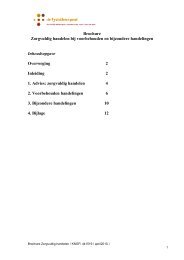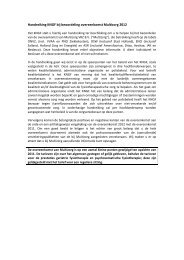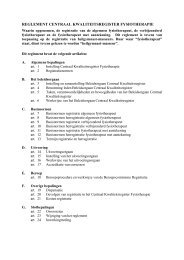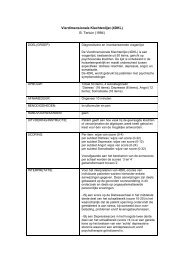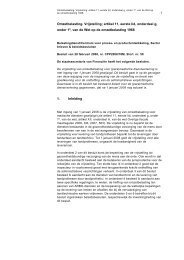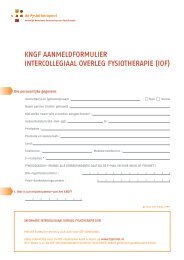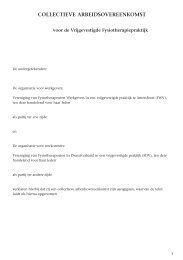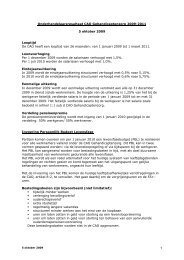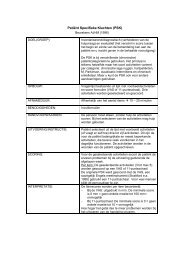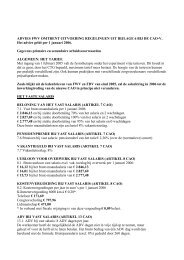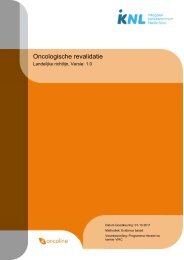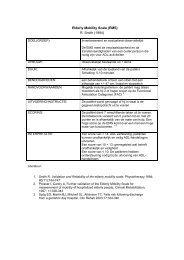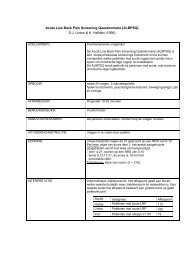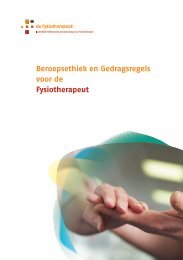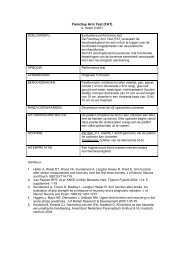Acupuncture and dry-needling for low back pain (Review)
Acupuncture and dry-needling for low back pain (Review)
Acupuncture and dry-needling for low back pain (Review)
Create successful ePaper yourself
Turn your PDF publications into a flip-book with our unique Google optimized e-Paper software.
Figure 2.<br />
<strong>Acupuncture</strong> compared to another intervention or added to other interventions<br />
2a. <strong>Acupuncture</strong> versus other interventions <strong>for</strong> acute <strong>low</strong>-<strong>back</strong><br />
<strong>pain</strong>:<br />
There is moderate evidence (one higher quality trial, 57 people)<br />
(Kittang 2001) that there is no difference immediately after, at<br />
the short-term, or at the intermediate-term fol<strong>low</strong>-ups between<br />
acupuncture <strong>and</strong> Naproxen 500 mg, taken twice daily <strong>for</strong> 10 days,<br />
in measures of <strong>pain</strong> (VAS).<br />
2b. <strong>Acupuncture</strong> versus other interventions <strong>for</strong> chronic <strong>low</strong><strong>back</strong><br />
<strong>pain</strong>:<br />
Compared to spinal manipulation, there is limited evidence (one<br />
<strong>low</strong>er quality trial, 68 people) (Giles & Muller 2003) that acupuncture<br />
is less effective <strong>for</strong> measures of <strong>pain</strong> <strong>and</strong> function immediately<br />
after the end of the sessions. Compared to massage, there is<br />
moderate evidence (one higher quality trial, 172 people) (Cherkin<br />
2001) that there is no difference immediately after the sessions in<br />
<strong>pain</strong> between acupuncture <strong>and</strong> massage, but there is a statistically<br />
significant difference in favour of massage at the long-term fol<strong>low</strong>up.<br />
For measures of function, massage was statistically significantly<br />
more effective than acupuncture immediately after the end of the<br />
sessions, but there was only a marginally statistically significant<br />
difference in favour of massage at the long-term fol<strong>low</strong>-up. However,<br />
differences in effect were only small (moderate evidence).<br />
Compared to celecoxib, rofecoxib or paracetamol, there is limited<br />
evidence (one <strong>low</strong>er quality trial, 72 people) (Giles & Muller 2003)<br />
that there is no difference immediately after the end of the sessions<br />
in measures of <strong>pain</strong> <strong>and</strong> function. There is conflicting evidence<br />
(two trials, 56 people) (Tsukayama 2002; Lehmann 1986) on the<br />
effectiveness of acupuncture compared to TENS <strong>for</strong> patients with<br />
chronic <strong>low</strong>-<strong>back</strong> <strong>pain</strong> <strong>for</strong> <strong>pain</strong> measured immediately after the<br />
end of the sessions: one higher quality trial with a small sample<br />
size (Tsukayama 2002) found a statistically significant difference<br />
in favour of acupuncture over TENS, while one <strong>low</strong>er quality trial<br />
(Lehmann 1986) found no difference. There is limited evidence<br />
(one <strong>low</strong>er quality trial, 36 people) (Lehmann 1986) that there is<br />
no difference at the intermediate-term fol<strong>low</strong>-up in <strong>pain</strong> between<br />
acupuncture <strong>and</strong> TENS <strong>for</strong> patients with chronic <strong>low</strong>-<strong>back</strong> <strong>pain</strong>.<br />
There is moderate evidence (one higher <strong>and</strong> one <strong>low</strong>er quality<br />
trial, 56 people) (Tsukayama 2002; Lehmann 1986) that there is<br />
no difference immediately after the end of the sessions in functional<br />
ability, between acupuncture <strong>and</strong> TENS, <strong>and</strong> there is limited<br />
evidence that there is no difference at the intermediate-term<br />
fol<strong>low</strong>-up (Lehmann 1986). Finally, compared to self-care education,<br />
there is moderate evidence (one higher quality trial, 184<br />
people) (Cherkin 2001) that there is no difference immediately<br />
<strong>Acupuncture</strong> <strong>and</strong> <strong>dry</strong>-<strong>needling</strong> <strong>for</strong> <strong>low</strong> <strong>back</strong> <strong>pain</strong> (<strong>Review</strong>)<br />
Copyright © 2011 The Cochrane Collaboration. Published by John Wiley & Sons, Ltd.<br />
9



